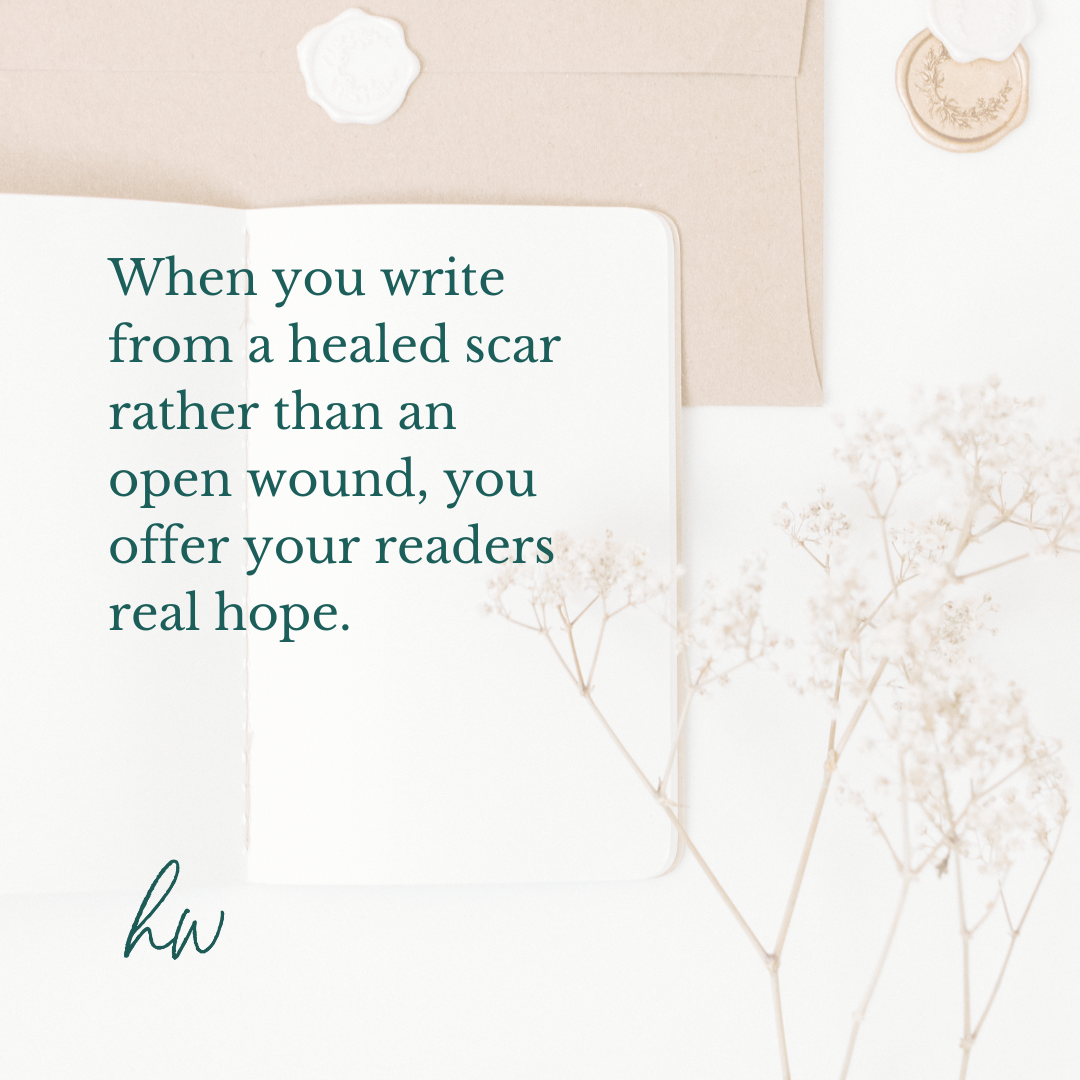Write Your Difficult Story With Hope

“You have to go through something and come out on the other side of something to know the full lessons and to know how to give proper hope and encouragement.” — Hannah Brencher
Many writers make a career out of sharing their personal stories with readers. These stories can run the gamut from humorous to sentimental to encouraging, but what often connects most deeply with readers is a difficult story shared from a place of vulnerability.
How do you share your difficult stories without divulging too much while also giving readers a sense of hope? The following tips will help you share your hard story.
Write with caution and wisdom.
Some stories are best shared within a safe, private relationship. A wide, unknown group of readers may not be the best audience for your hard story, particularly if you are still living that story or if it requires you to share intimate details about another person. Accept that there are some experiences you may never write about, especially if your stories bump up against someone else’s. Once your words are out in the world, they can’t be taken back.
Avoid sharing prematurely.
If you want to share a hope-filled story with your readers, it helps to reach a hopeful resolution on the other side of your experience first. Sharing prematurely can shortchange you and the reader. Some experiences may never have a final resolution, but you may have resolved in your heart and mind that you have reached a point where your story will be helpful to others. When you write from a healed scar rather than an open wound, you offer your readers real hope.

Journal through your experience first.
You may not share with readers as your story unfolds, so it’s a good idea to create a rhythm of journaling through the details of your story as you experience it. Use these detailed notes as your source material when you’re ready to share with an audience. Capture all the details now, and decide later what is worth including in the story. You can identify and choose to leave out the elements that are unhelpful or potentially harmful to a person involved in the story when you’ve written in private first.
Set boundaries for what you will and won’t share.
Every writer needs to decide for themselves what boundaries to set around their story. This is an individual process, and no one can decide for you. Decide on your boundaries in advance to avoid publishing a piece and regretting it later. As you continue to share your difficult stories, reevaluate and refine your boundaries based on how you and your readers respond to the material.
Share with a trusted individual before publishing.
Once you’ve journaled through your experience, found a hopeful offering for your reader, and set boundaries around your work, one final step may be to have a trusted partner or friend read it before you publish. If you feel ambivalent about publishing your story, a second set of eyes can help you discern if your work is ready for an audience.
Your difficult experiences are worth sharing with readers when you can confidently offer a hopeful perspective. Your vulnerability is a gift — honor it with time, patience, and healthy boundaries that protect both you and your audience.
Are you a writer who wants to tell hard but hopeful stories that readers need? To help you make progress in your writing journey, we've put together a simple guide that will lead you through 10 questions to ask yourself before sharing your story in a book. Click here to check out this free resource.
